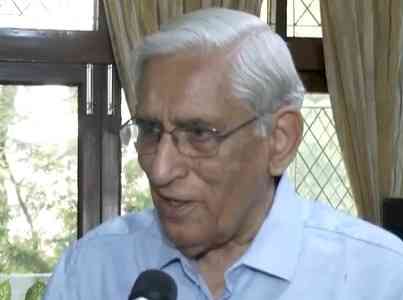The Kiran Nadar Museum of Art presents Structuring Form - The Innovative Rigour of Mahendra Raj
Author(s): City Air NewsNew Delhi, November 28, 2019: Kiran Nadar Museum of Art has announced a special exhibition detailing seven architectural projects, raised by the structural engineering genius of Mahendra Raj out of his two hundred...


New Delhi, November 28, 2019: Kiran Nadar Museum of Art has announced a special exhibition detailing seven architectural projects, raised by the structural engineering genius of Mahendra Raj out of his two hundred fifty projects begins from 19th November 2019 at Kiran Nadar Museum of Art, Saket, New Delhi.
The collaborative alliance between the architect and the structural engineer (and teams) often remains understated. The productive process and nature of working together may enter explorations of new construction materials, arriving at exciting patterns and textures, sourcing low cost materials and articulating in built forms, the dramatic play between space and scale.
The projects like the Hall of Nation in New Delhi, the Akbar Hotel and NCDC Office building in New Delhi, the Hindon River Mills in Ghaziabad the Municipal Stadium and Tagore Memorial Theatre in Ahmedabad and the Indoor Sports Stadium in Srinagar find special place in this exhibition, alongside chronicling the career of this engineering innovator.
Architects like Charles Correa (Municipal Stadium, Ahmedabad), Raj Rewal (Hall of Nation), BV Doshi (Tagore Memorial Hall), Kuldeep Singh (NCDC Building) are considered hallmarks of modern India architecture. It was arguably their partnership with a Structural Engineer like Mahendra Raj that phenomenal modernist architecture found space on the developing Indian terrain. Mahendra Raj’s career can be mapped altogether the period of India’s Post-independence modernisation, a period marked by massive constructions flourishing across the country, that eventually changed its urban landscape.
The ambition of a budding nation like India was marked by widespread building of structures like stadia, theatres, bridges, dams, factories, airports, hospitals, universities and banks. The first prime minister of Independent India Pt. Jawahar Lal Nehru hailed modern industrial buildings as the new age temples of modern India. Throughout the several ups and downs witnessed by the Indian economy over the decades, the developmental work that entailed a nation’s infrastructure was distinguished by recruiting a resourceful, avant-garde pioneer like Mahendra Raj.
Concrete as building material was popular across the world, when Mahendra Raj executed these structures, however the material had its own limitations. In the 1960s, India was far from intense mechanisation unlike the western countries, Raj used this shortcoming to his advantage and experimented with structures, with the availability of affordable material and labour.
“Mahendra Raj has carried the whole modern Indian architecture on his shoulders. My interaction with him was like a jugalbandi that has helped enhance and execute my visions”, mentioned Raj Rewal, while describing the immense skill and tenacity with which Raj, executed these magnificent structures. Mahendra Raj’s ingenuity lay in the fact that he deployed easily available manual labour as well as construction material to craft his structures almost like artefacts, so unique that they went on to become his signature aesthetics.
From the book ‘The Structure, Works of Mahendra Raj’, 2016, edited by Vandini Mehta, Rohit Raj Mehndiratta and Ariel Huber.
His life and work garners much more relevance and attention in present times with the growing threat of demolition of modern structures like the iconic Hall of Nations, one of the featured projects in the exhibition, was razed to dust in 2017. The archive of his structures along with recent photographs indicate the power and elegance of different structures as they were constructed and laying bare the engineering inventiveness of Mahendra Raj. The drawings, especially the blueprints reveal the ‘techne’ of construction in different decades of Raj’s practice. These buildings were iconic objects, many with a commanding presence and setting, compelling one to look upon him as a craftsperson, even artist-visionary of his times and after.


 cityairnews
cityairnews 










